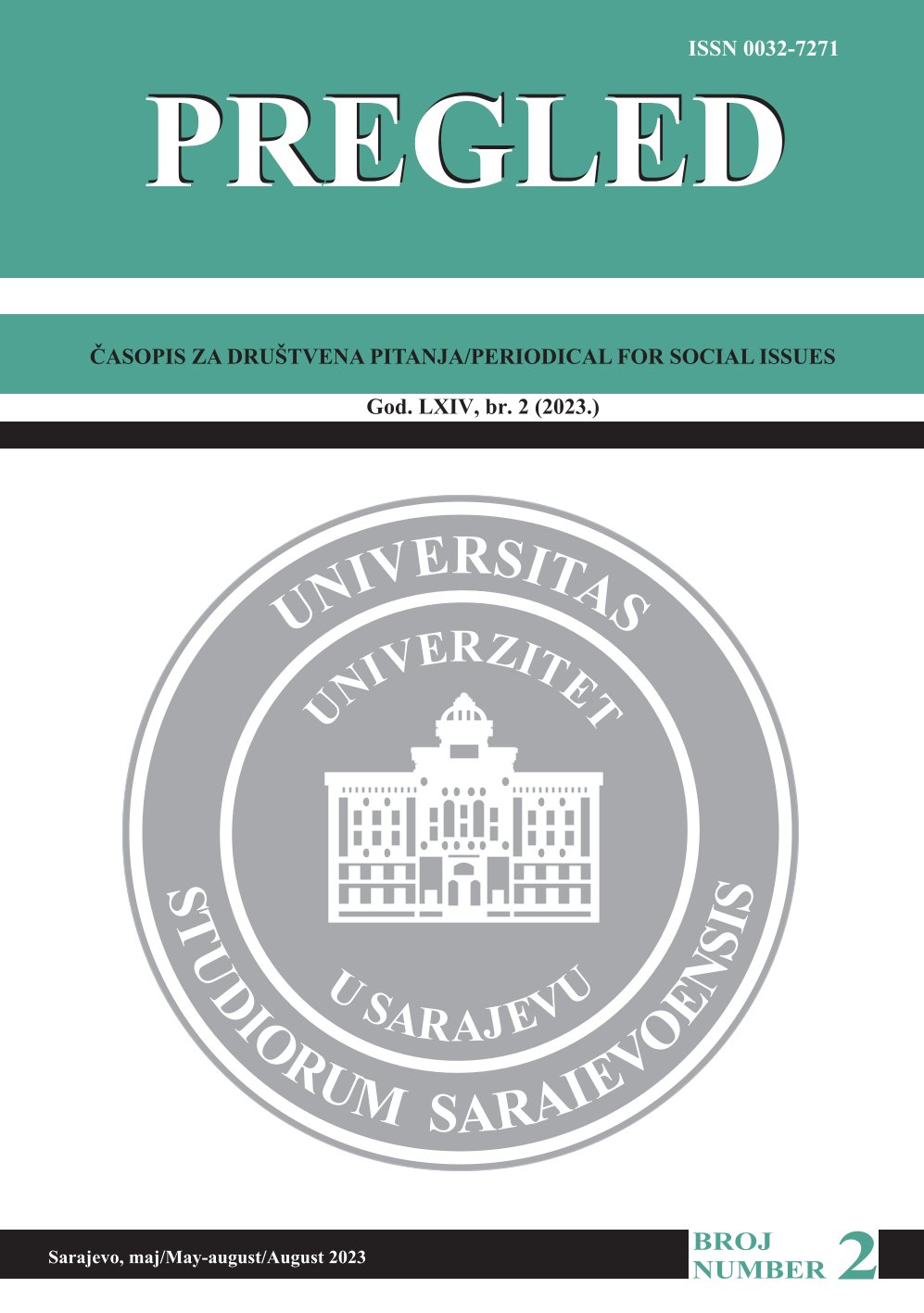Opšte determinante bosansko-bošnjačke interferencije: Etatizacija bošnjačke politike
General Determinants of Bosnian-Bosniak Interferences: Etatization of Bosniak Politics
Author(s): Muedib ŠahinovićSubject(s): Politics / Political Sciences, Political Theory, Politics and society, Politics and Identity
Published by: Univerzitet u Sarajevu
Keywords: Bosniak politics; identity; state; interference; conflict; bosnian nation; Bosnia and Herzegovina;
Summary/Abstract: The paper presents a sociological research of key characteristics, theoretical assumptions and strategic interests of Bosniak politics, which, in a diachronically very limited time, faced complex challenges of preserving its own ethnic identity and simultaneous efforts to strengthen the state role and its political prerogatives. Such challenges generate existential dilemmas about the possible loss of one's own ethnic substance through a process of interference with the identity of the state and its interests. The research is largely focused on the contingent issue of the nation, which is very sensitive in the context of Bosnia and Herzegovina and has the potential to ideologically divide the political spectrum into two completely different concepts (civic and ethnic). The Bosniak connection with Bosnia and the tendency towards a modern Bosnian nation-state that will overcome ethnic differences, divisions and conflicts is becoming a vital political context in which Bosniaks fill the empty space between the state and the nation. Sociological analysis critically investigates the whole process, objectively pointing out some of the mistakes that Bosniak politics has made or can make. The research showed that the Bosnian nation as a political fact does not exist in full capacity because it is burdened by the conflict of Bosniak insistence and, consequently, Serbo-Croat rejection. This fact has its functional repercussions on political perceptions of the status and future of Bosnia and Herzegovina, which for Bosniaks is not just an administrative space or a political agreement of ethnic groups, but above all a homeland. With the intention of more precise analytical research, the paper is based on a qualitative methodological approach and in addition to the usual research methods such as content analysis, synthesis, deduction, induction, generalization and comparison, the research-based interview method was also employed.
Journal: PREGLED - časopis za društvena pitanja
- Issue Year: LXIV/2023
- Issue No: 2
- Page Range: 37-58
- Page Count: 22
- Language: Bosnian

